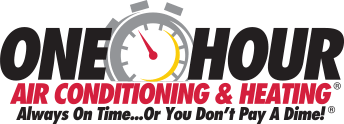
How HVAC Systems Impact Home Resale Value
- System Overview: HVAC systems control temperature, humidity, and air quality in homes through heating, cooling, and ventilation components.
- Key Components:
- Heating: Involves furnaces or boilers to distribute heat via ducts or radiators.
- Ventilation: Ensures the replacement of indoor air with fresh outdoor air to maintain air quality.
- Air Conditioning: Uses central air conditioners or mini-split systems to cool and dehumidify indoor air.
- Types of HVAC Systems:
- Split Systems: Consists of separate indoor and outdoor units, common for their efficiency.
- Hybrid Systems: Combine gas furnaces with electric heat pumps for cost-effective heating.
- Duct-Free Systems: Mini-split systems ideal for homes lacking ductwork.
- Zoned Systems: Allow for different temperature zones within the home, enhancing comfort and efficiency.
- Packaged Systems: Contain all components in one outdoor unit, typically installed on the roof.
- Benefits of Modern Systems:
- Energy Efficiency: Modern systems use less energy, reducing utility bills and environmental impact.
- Improved Air Quality: Equipped with advanced air filters to remove pollutants and allergens.
- Enhanced Comfort: Offer precise temperature and humidity control.
- Impact on Home Resale Value:
- Attractiveness to Buyers: Homes with efficient, modern HVAC systems are more appealing and can sell faster.
- Increased Home Value: A well-maintained and updated system can significantly raise the home’s market value.
- Cost vs. Benefit: The initial investment in a good HVAC system can offer returns through energy savings and higher resale value.
Have you ever wondered how HVAC systems impact home resale value?
HVAC stands for Heating, Ventilation, and Air Conditioning. These systems are crucial for maintaining indoor comfort by regulating temperature and air quality. A well-functioning HVAC system not only ensures a comfortable living environment but also significantly affects a home’s marketability and resale value.

Overview of How HVAC Systems Work
An HVAC system works by controlling the temperature, humidity, and air quality within a home. It consists of several components that work together to provide heating, cooling, and ventilation. The system’s effectiveness and efficiency can greatly influence a potential buyer’s perception of a home’s value.
Components of HVAC Systems
Heating
Heating is the “H” in HVAC. It typically involves a furnace or boiler, which generates heat that is then distributed throughout the home via ducts or radiators. Proper heating systems are essential for maintaining a warm and comfortable indoor environment during colder months.
Ventilation
Ventilation is the “V” in HVAC. It ensures the circulation of fresh air within the home. Effective ventilation systems remove stale air and pollutants, replacing them with clean, fresh air. This is crucial for maintaining indoor air quality and reducing the risk of respiratory issues.
Air Conditioning
Air conditioning is the “AC” in HVAC. It cools the indoor air during hot weather. Central air conditioners or ductless mini-split systems are commonly used to lower the temperature and control humidity, ensuring a comfortable indoor climate.
Types of HVAC Systems
Split Systems
Split systems are the most common type of HVAC system. They consist of an outdoor unit (which houses the compressor and condenser) and an indoor unit (which contains the evaporator coil and air handler). This setup is known for its efficiency and ability to maintain a consistent indoor temperature.
Hybrid Systems
Hybrid systems combine a traditional gas furnace with an electric heat pump. This allows homeowners to switch between the two energy sources, optimizing efficiency based on current energy costs and weather conditions. Hybrid systems are ideal for those looking to reduce energy bills while maintaining comfort.
Duct-Free Systems
Duct-free systems, also known as mini-split systems, do not require ductwork. They consist of an outdoor compressor and one or more indoor air handling units. Each indoor unit is connected to the outdoor unit via refrigerant lines. These systems are perfect for homes without existing ductwork or for adding climate control to specific areas.
Zoned Systems
Zoned HVAC systems divide a home into different zones, each with its own thermostat. This allows for individualized temperature control in different areas, enhancing comfort and energy efficiency. Zoned systems are ideal for larger homes where different areas may require different temperatures.
Packaged Heating and Air Systems
Packaged systems contain all the heating and cooling components in a single outdoor unit. These systems are typically installed on the roof or next to the home and are a good option for homes with limited indoor space. They are known for their compact design and ease of installation.
Benefits of Modern HVAC Systems
Energy Efficiency
Modern HVAC systems are designed with energy efficiency in mind. They use advanced technology to minimize energy consumption, which not only reduces utility bills but also lessens the environmental impact. High-efficiency models can significantly lower annual energy costs, making them a wise investment for homeowners.
Improved Air Quality
Newer HVAC systems come equipped with advanced air filtration systems that remove dust, allergens, and other pollutants from the air. This leads to better indoor air quality, which is particularly beneficial for individuals with allergies or respiratory issues. Clean air contributes to a healthier living environment.
Temperature Control
Modern HVAC systems offer precise temperature control, allowing homeowners to set and maintain their desired indoor temperature with ease. Features like programmable thermostats and zoning systems enable more accurate and customized climate control, enhancing overall comfort.
Humidity Regulation
Humidity control is another critical feature of modern HVAC systems. Proper humidity levels are essential for comfort and can prevent issues such as mold growth and wood damage. Advanced HVAC systems regulate indoor humidity, ensuring a balanced and comfortable environment.
Enhanced Comfort and Productivity
With modern HVAC systems, homeowners experience consistent and reliable comfort. The ability to maintain optimal temperature and humidity levels leads to a more pleasant living environment. This can also enhance productivity, as people tend to work and relax better in comfortable settings.
Factors Affecting HVAC System Efficiency
Size and Capacity
The size and capacity of an HVAC system play a critical role in its efficiency. An undersized system will struggle to maintain the desired temperature, leading to increased energy consumption and wear. Conversely, an oversized system will cycle on and off frequently, causing energy waste and higher utility bills. Proper sizing ensures optimal performance and efficiency.
Maintenance and Upkeep
Regular maintenance is essential for keeping an HVAC system running efficiently. Tasks such as changing filters, cleaning coils, and inspecting ductwork help prevent issues and maintain optimal performance. Neglecting maintenance can lead to decreased efficiency, higher energy costs, and costly repairs.
Technological Advancements
Advancements in HVAC technology have led to more efficient and effective systems. Innovations such as variable-speed compressors, smart thermostats, and advanced air filtration systems enhance performance and reduce energy consumption. Keeping up with these technological developments can significantly improve system efficiency.
The Role of HVAC Systems in Home Resale Value
Buyer Preferences
Homebuyers today prioritize comfort and efficiency when evaluating potential homes. A modern, well-maintained HVAC system is often seen as a significant selling point. Buyers appreciate the assurance of a reliable climate control system that won’t require immediate upgrades or replacements. This can make your home more attractive in a competitive market.
Perceived Value Addition
An updated HVAC system can add perceived value to your home. Potential buyers are likely to view a newer system as a marker of a well-cared-for property. This perception can translate into higher offers and a quicker sale. Investing in a modern HVAC system can thus yield a substantial return by enhancing the overall appeal and value of your home.
Comparison with Homes Lacking Modern HVAC Systems
Homes without modern HVAC systems are often at a disadvantage in the market. Buyers may factor in the cost and inconvenience of upgrading an outdated system when making an offer. In contrast, a home with a current, energy-efficient HVAC system can stand out, making it a more appealing choice. This comparison can give your home a competitive edge, potentially leading to better offers.
Cost-Benefit Analysis of Upgrading HVAC Systems
Initial Costs vs. Long-Term Savings
Upgrading an HVAC system can be a significant investment, with costs varying based on the system type and complexity. However, these initial expenses are often offset by long-term savings. Modern HVAC systems are more energy-efficient, which reduces monthly utility bills. Over time, these savings can accumulate, making the initial investment worthwhile.
Return on Investment (ROI)
The ROI on an upgraded HVAC system can be substantial. Homeowners can expect to recoup a significant portion of the installation costs through energy savings and increased home value. According to real estate experts, a new HVAC system can increase a home’s resale value by up to 10%. This makes it a smart financial decision, especially if you plan to sell your home soon.
Energy-Saving Features of Modern HVAC Systems
Programmable Thermostats
Programmable thermostats are a key feature in modern HVAC systems that help save energy. These devices allow homeowners to set specific temperatures for different times of the day. For instance, you can program the thermostat to lower the temperature when you’re away and increase it just before you return. This reduces energy consumption and lowers utility bills without compromising comfort.
Zoning Systems
Zoning systems divide a home into different areas, each with its own thermostat. This setup allows for individualized temperature control, meaning you can heat or cool only the rooms you use. By avoiding the unnecessary conditioning of unused spaces, zoning systems enhance energy efficiency and provide personalized comfort.
High-Efficiency Models
High-efficiency HVAC models are designed to use less energy while providing optimal performance. These systems often have higher SEER (Seasonal Energy Efficiency Ratio) ratings, indicating better energy efficiency. Investing in a high-efficiency model can lead to significant long-term savings on energy bills and a reduced environmental impact.

Smart HVAC Systems
Features of Smart HVAC Systems
Smart HVAC systems incorporate advanced technology to optimize performance and convenience. Features include:
- Remote Access: Control your system from anywhere using a smartphone app.
- Learning Capabilities: Smart thermostats learn your schedule and adjust settings automatically.
- Energy Usage Reports: Get detailed insights into energy consumption to help identify savings opportunities.
- Integration with Home Automation: Sync your HVAC system with other smart home devices for enhanced control.
Benefits of Smart Technology Integration
Integrating smart technology into your HVAC system offers numerous benefits:
- Improved Energy Efficiency: Automated adjustments and real-time monitoring help reduce energy use.
- Enhanced Comfort: Precise control over temperature and humidity ensures a consistently comfortable environment.
- Convenience: Manage your system with ease, whether you’re at home or away.
Retrofitting Existing Systems with Smart Components
You don’t need to replace your entire HVAC system to enjoy the benefits of smart technology. Many components, such as smart thermostats, can be retrofitted to existing systems. This allows you to upgrade your home’s climate control capabilities without a complete overhaul.
Choosing the Right HVAC System for Your Home
Assessing Home Requirements
Choosing the right HVAC system starts with assessing your home’s specific needs. Factors to consider include the size of your home, the local climate, and your budget. A professional HVAC assessment can provide valuable insights and recommendations tailored to your home’s unique requirements.
Consulting with HVAC Professionals
Consulting with HVAC professionals is crucial when selecting a new system. Professionals can evaluate your home’s layout and existing infrastructure to recommend the most suitable system. They can also provide detailed cost estimates and efficiency ratings, helping you make an informed decision.
Comparing Different Models and Brands
When comparing different HVAC models and brands, consider the following:
- Energy Efficiency Ratings: Look for systems with high SEER or HSPF ratings for better energy efficiency.
- Warranty and Support: Check the manufacturer’s warranty and the availability of customer support.
- Reviews and Testimonials: Read reviews and seek testimonials from other homeowners who have installed similar systems.
- Price vs. Performance: Balance the cost of the system with its performance and long-term savings potential.
Taking the time to compare various models and brands ensures you choose an HVAC system that meets your needs and budget while providing reliable performance and energy savings.
Innovative HVAC Technologies
Variable Refrigerant Flow (VRF) Systems
Variable Refrigerant Flow (VRF) systems are among the most advanced HVAC technologies available. These systems adjust the amount of refrigerant flowing to each indoor unit based on current demand. This means they can provide precise temperature control, making them highly efficient. VRF systems are ideal for larger homes or buildings with multiple zones, as they can simultaneously heat and cool different areas.
Duct Sealing and Insulation Technologies
Advancements in duct sealing and insulation have made HVAC systems more efficient. Techniques such as aerosol-based duct sealing can effectively seal leaks from the inside out, improving system efficiency and indoor air quality. Proper insulation of ductwork prevents energy loss, ensuring that conditioned air reaches its destination without significant temperature changes.
Advanced Air Purification Systems
Modern HVAC systems can include advanced air purification components that go beyond standard filtration. Technologies like UV light air purifiers and electronic air cleaners can remove microscopic particles, bacteria, and viruses from the air. This is particularly beneficial for households with allergy sufferers or those looking to improve overall indoor air quality.
Heat Recovery Ventilators (HRVs) and Energy Recovery Ventilators (ERVs)
HRVs and ERVs are innovative technologies that improve indoor air quality and energy efficiency. HRVs exchange stale indoor air with fresh outdoor air while retaining heat. ERVs also manage humidity levels by transferring moisture between incoming and outgoing air streams. These systems are essential for maintaining a comfortable and healthy indoor environment, especially in tightly sealed homes.
IoT Integration and Predictive Maintenance
The Internet of Things (IoT) is revolutionizing HVAC systems by enabling real-time monitoring and predictive maintenance. Smart sensors and connected devices can monitor system performance, detect issues, and even predict maintenance needs before problems arise. This proactive approach helps avoid unexpected breakdowns and extends the lifespan of HVAC systems, ensuring they operate efficiently.
HVAC System Installation and Maintenance
Professional Installation Guidelines
Proper installation is critical for the performance and longevity of your HVAC system. Here are some professional installation guidelines to follow:
- Hire Certified Technicians: Ensure the installation is performed by licensed and certified HVAC professionals.
- Proper Sizing: The system should be correctly sized to match your home’s heating and cooling needs.
- Sealed Ductwork: All ductwork should be properly sealed to prevent air leaks and maximize efficiency.
- Calibrated Thermostat: The thermostat should be calibrated and tested to ensure accurate temperature control.
- System Testing: After installation, the entire system should be tested to confirm it operates efficiently and effectively.
Routine Maintenance Schedules
Regular maintenance is essential for keeping your HVAC system running smoothly. Follow these maintenance schedules:
- Monthly: Check and replace air filters, inspect the thermostat settings, and ensure vents are unobstructed.
- Seasonally: Before peak heating and cooling seasons, schedule a professional inspection to check all components and perform necessary tune-ups.
- Annually: Have a comprehensive maintenance check by a professional technician, including cleaning coils, inspecting ductwork, and testing the system’s performance.
DIY Maintenance Tips
Homeowners can perform several DIY maintenance tasks to prolong the life of their HVAC system:
- Replace Air Filters: Change air filters every 1-3 months to maintain airflow and improve air quality.
- Clean Vents and Registers: Regularly clean vents and registers to remove dust and debris.
- Check the Thermostat: Ensure the thermostat is functioning correctly and set to the appropriate temperature.
- Inspect Outdoor Unit: Keep the area around the outdoor unit clear of debris, leaves, and plants to ensure proper airflow and operation.
These simple maintenance tasks can help keep your HVAC system running efficiently and prevent costly repairs.
FAQs
-
How often should I replace my HVAC filters?
You should replace your HVAC filters every 1-3 months. This helps maintain good air quality and system efficiency. Homes with pets or allergies may need more frequent changes.
-
How can an HVAC system increase my home’s resale value?
A modern HVAC system can increase your home’s resale value by improving energy efficiency, comfort, and reliability. Buyers often prioritize homes with updated systems, seeing them as less likely to need immediate repairs or upgrades.
-
What are the signs that my HVAC system needs maintenance?
Common signs include reduced airflow, unusual noises, inconsistent temperatures, and higher energy bills. Regular professional inspections can help identify and address issues early.
-
Can I install a smart thermostat with my existing HVAC system?
Yes, most existing HVAC systems can be upgraded with a smart thermostat. Smart thermostats offer better control, energy savings, and convenience, making them a popular upgrade.
-
What are the benefits of a zoning system for HVAC?
Zoning systems allow for personalized temperature control in different areas of your home. This improves comfort and energy efficiency by heating or cooling only the areas that need it, rather than the entire home.






